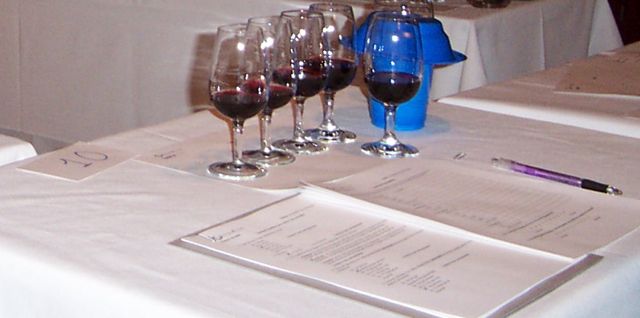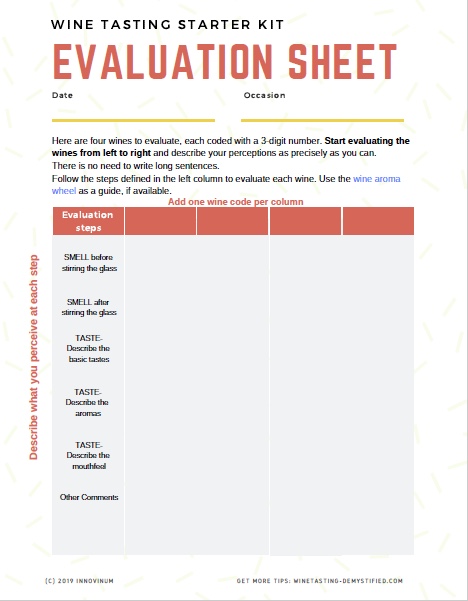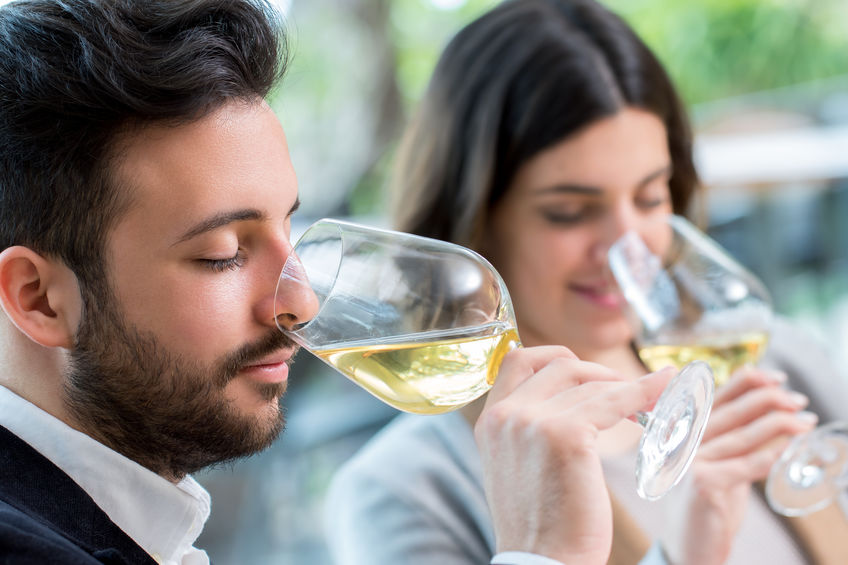Writing wine tasting notes help you memorize the sensory impressions of each wine you taste
Why should you start taking wine tasting notes?
Keeping wine tasting notes is a good habit to adopt, especially if you are a wine student or a wine professional in training.
There are several reasons for writing down wine terms describing what you perceive while tasting:
- You will develop with practice a consistent vocabulary to describe aroma, taste, and mouthfeel sensations.
Whether you choose to create your lexicon or to learn a vocabulary established by your professor or your company, the more you are using these words, the better. Indeed, when a perception arises, you will try to match it with one of these descriptive words.
A lot of research has shown that writing down a description of what you perceive improves the coding of the sensation into your memory, so it becomes easier for you to remember it. Research has also shown that it is difficult to establish a stable connection with only one trial. The more you practice and associate the same word with the same sensation, the more fluent your wine vocabulary becomes.
- You will learn to associate specific wine descriptors with individual wine styles
This habit is what wine students and professionals alike need to acquire to excel at work. As a wine enthusiast, it helps you identify the wine notes you appreciate or dislike, and therefore the wine styles you should focus on for your enjoyment.
- You will start building mental records of wines you like or prefer to avoid.
You can then refer to previous wine tasting notes when another opportunity to taste these wines occurs.
Information to include in your wine tasting notes
The basic framework of your records should guide you through the 5 Ss process, which for me consists of: Smell - Swirl -Smell again - Sip - See.
At each step of your tasting, write down what you smell, taste, or feel,
using descriptive terms, trying to be as specific as you can.
This simple task seems daunting at first because you lack vocabulary; it becomes more comfortable with practice and the use of few tools such as the wine aroma wheel or standards to give you confidence in your tasting abilities.
Check out a few tips in the Wine Tasting Terms article.
Once the tasting host unveils the wine bottles and shares each wine details, you want to record for future reference:
- the winery name
- the wine brand if any
- grape varietal(s) (e.g. Chardonnay) or wine style (e.g. Bordeaux blend)
- wine appellation if any
- vintage, i.e., the year of production
At the end of your analysis, you can add a quality assessment, depending on your goals for the wine tasting notes. The following questions may help you with your quality rating:
- Are all the perceptions well-integrated or balanced, as winemakers like to say; in other words, if you had to draw the wine profile, would it be smooth or spiky?
- Are the wine perceptions in line with your expectations for the wine region, the wine style?
- Did you like it? This question is the most important information to record, even if you are a wine professional. We are all consumers, after all.
How to organize your wine tasting notes ?

There are many versions out there. WSET students are trained to use the organization template. Regulatory bodies such as liquor boards or the OIV have their versions.
Why are they different? The tasting notes have different purposes, whether they are education tools or quality grading instruments.
If you run a search on the internet, you will see many examples, branded or not, under the labels of tasting notes, tasting scorecard, tasting evaluation sheets, or tasting sheets.
I am happy to share with you my wine tasting note template; you may download the two pages and start using them right away.
Writing or drawing your tasting experience?
In the article, The Path to Become a Wine Expert, I describe the experiments conducted by K. Latour and colleagues to understand the training path to become a wine expert. They found that matching wine tasting experience with images or drawings helped the tasters remember the wine qualities.
What about wine apps to record your tasting notes?
Many wine apps are available and accessible from your smartphone or tablet. There are overall two categories:
- wine apps by wine critics enabling the users to select a wine based on the critic's reviews
- wine apps to help you manage your cellar or track the wines you have tasted based on their label information; the downside is that usually, the review you type yourself is not conveniently searchable.
It's challenging to find a platform that connects sensory description and wine styles; such a system would help learn the wine characteristics you like (or don't like).
Quini proposes a novel approach to capture your tasting impressions visually, and I was pleased they used the Wine Aroma Wheel and a few of my advice.
I haven't done an exhaustive review of current wine apps or wine tasting journals.
I invite you to submit below your favorite system to keep and organize your wine tasting notes, and why it works for you.
What is Your Favourite Wine Tasting Notes App or Recording System?
Do you have a great app to recommend to other wine tasters? or do you use a tasting journal that particular works for you? Tell us what it is, why you like it so much, what are the basic functions. You can also upload screen shots or photos. And just share it!
First published: February 2013
Revised: November 2019
Home > Wine Tasting Kit> Wine Tasting Notes




